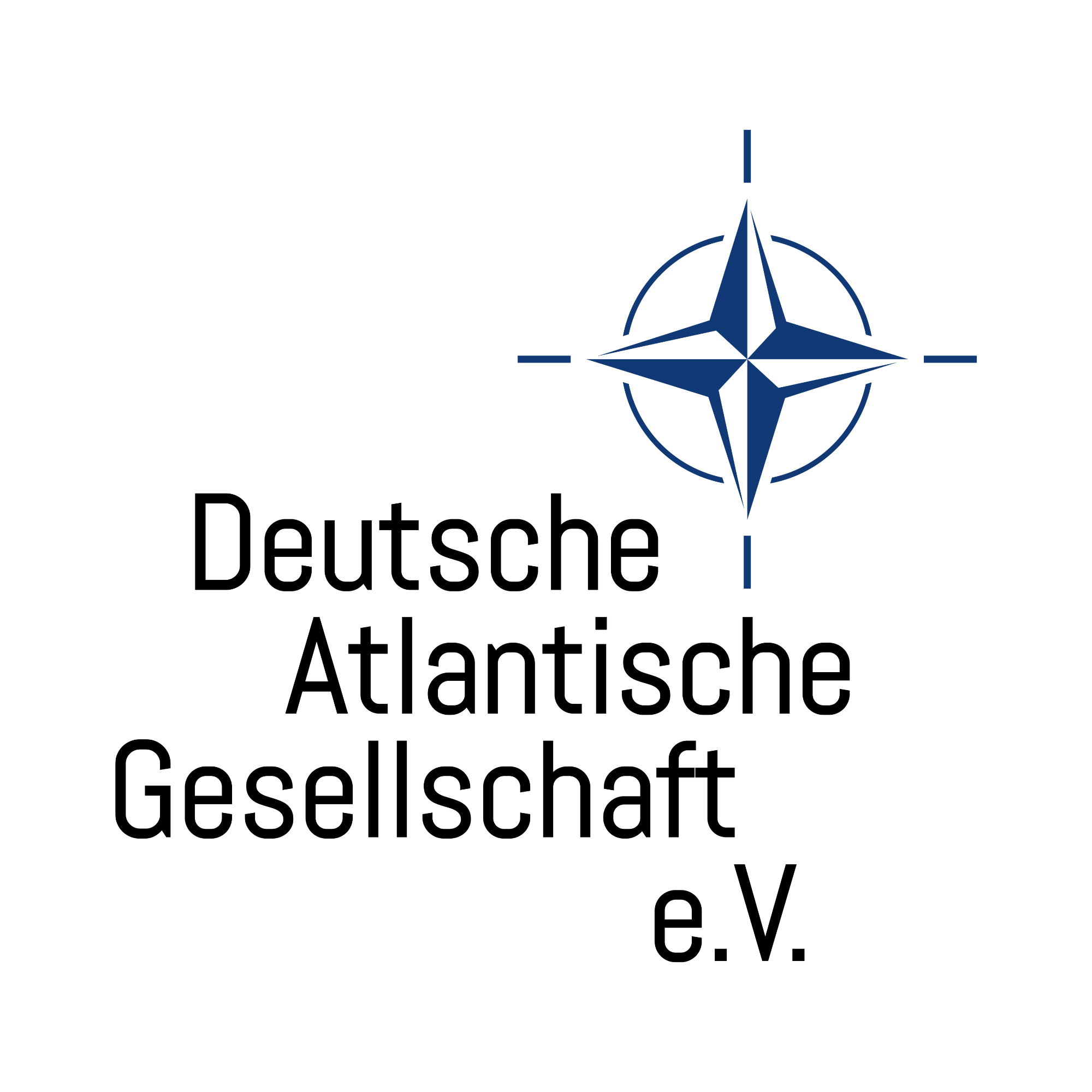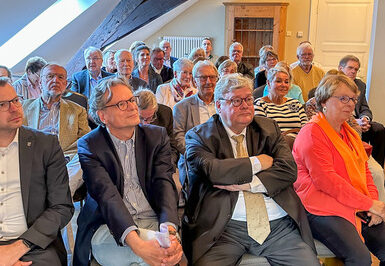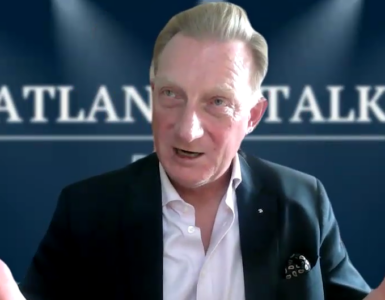“Germany’s position as a leader of the European Union positions it as a key global influencer, especially in its relationships with the United States, Russia, and China. As the Christian Democratic Union (CDU) enters its post-Merkel era, it seems likely that foreign policy will play a bigger role, with Germany aiming to take more leadership and responsibility.” Or so says London’s Chatham House, which is far from being the only international voice expecting Germany to step up to the plate. In recent years, the chorus of transatlantic policymakers and security pundits calling upon Berlin to demonstrate more leadership in foreign and defense affairs has grown into a steady background noise. Members of the new US administration are poised to become a forceful part of this group; they will likely be disappointed.
For one, 2021 is an election year in Germany. In addition to national elections on September 26, six federal states will see citizens to go to the polls, which means the country will be in non-stop election mode. National security and global challenges will not be at the center of political debates. On the contrary, the majority of German politicians on the campaign trail can be expected to avoid tricky questions of strategic relevance. The economic and social fallout of the COVID-19 pandemic, migration, and other domestic themes will be of keen interest to voters—not whether Germany intends to frame a new relationship with Russia or get China on board for international disarmament efforts. What’s more, there is only a handful of Berlin policymakers competent and interested in geopolitical issues.
What Would “Black-Green” Look Like?
Current polls indicate that a government of the center-right Christian Democrats, the CDU/CSU, and the Greens, also known as a “black-green” coalition, is the likeliest outcome come the September election. The two parties’ positions on national security, respectively, or the lack thereof, do not leave much room for optimism.
Indeed, the Christian Democrats have always been staunch supporters of both close transatlantic relations and a more capable EU; concrete ideas how to upgrade Germany’s role in NATO and the EU are still lacking, though. Friedrich Merz, one of the contenders for the CDU leadership (the vote is due on January 16), regularly advocates a more active European foreign and security policy but he does not specify where and how. The same applies to Armin Laschet, Prime Minister of North Rhine-Westphalia, who describes himself as »a committed European and transatlanticist,” but that is basically where his foreign policy outlook seems to end. In the transatlantic security community, both are dark horses compared to Norbert Röttgen, the third candidate running for CDU leadership, who as chairman of German parliament’s foreign affairs committee enjoys a reputation as a highly competent foreign policy specialist.
The Greens, meanwhile, have gradually moved toward a more pragmatic foreign policy approach in recent years, leaving behind some of their traditional pacifist worldviews. While their two co-leaders, Annalena Baerbock and Robert Habeck, like to present themselves as modern politicians with a global outlook, the party’s new platform offers few convincing proposals on how Germany would cope with the multitude of global challenges: only two short paragraphs out of 435 in the 81-page document are dedicated to transatlantic relations (paragraph 378) and NATO (paragraph 399) which, in itself, is a message.
Future transatlantic relations should “be redefined and become Europeanized,” the Greens say. While NATO, in their view, lacks a clear strategic perspective, it remains along with the EU “an indispensable actor.” Apart from these rather skimpy statements, the Greens demand the withdrawal of nuclear weapons from Germany, propose to discuss global human issues with Russia and China, advocate that UN-led military operations should have priority over NATO- and EU-led missions and question NATO’s 2 percent defense spending target since it would lead to an arms race.
Anchoring Germany’s foreign and defense policy firmly in both the EU and NATO has been a policy objective of any German government. The next one will be no different, of course, even though the “black-green” policy overlap is currently sketchy. But how concretely will Berlin seek to develop a “new transatlantic deal” with the new US administration, that Foreign Minister Heiko Maas (SPD) has propagated? (Maas’ center-left Social Democrats party, or SPD, has moved markedly to the left in recent months on foreign and defense affairs). In which areas does Berlin seek to share the transatlantic burden, both diplomatically and militarily? German politicians have often voiced their general preparedness to “do more,” but what exactly is “more”?
Still Napping
Take China policy, for example. Beijing’s decision to embark on the transformation of the country into a global economic, technological, and military power did not transpire overnight. The same is true for Washington’s strategic focus on the Asia-Pacific region. The Biden administration’s intention to put containment of an increasingly assertive China at the top of its national security agenda cannot surprise anyone. Yet a substantial policy discussion about how to respond to China’s rise through a coordinated transatlantic approach has only begun in Berlin very recently. At this point in time, only the parliamentary group of Germany’s liberal Free Democrats (FDP) has raised the China issue by putting a series of formal parliamentary queries to Chancellor Angela Merkel’s government. A clear and comprehensive German strategy toward China is a long way off.
The need to reinvigorate NATO that suffered quite significantly from four years of destructive Trumpism and national populism in Europe has also been apparent for some time. But when French President Emmanuel Macron called NATO “brain dead,” reactions in Germany were cautious at best. Berlin responded with the tried and tested method of establishing a working group, the NATO Reflection Group, whose 10 members worked hard for many months to produce a substantial report.
Upon its presentation in early December 2020, Maas and his French counterpart, Jean-Yves Le Drian, issued a short joint statement, praising the effort politely—and that was the end of that. So far, the Expert Group’s “NATO 2030: United for a New Era” report has not spurred any substantially reactions from the German political class. This is all the more deplorable since the 67-page report not only entails a sober description of the harsh geopolitical environment that the Western alliance faces, but also offers a large number of concrete and operational policy proposals.
No Fertile Ground
Looking ahead, any post-Merkel coalition government will likely remain focused on a difficult domestic playground where the development of bold, strategic policy initiatives will find little fertile ground. The prevailing disconnection between foreign policy rhetoric and concrete, sustainable policy initiatives is only likely to change once Berlin policymakers stop “playing it safe” (“den Ball flach halten”) and understand that the incoming US president and his team will ask Berlin for concrete policy input, further defense contributions, and ultimately more leadership.
Seen from Washington, Germany and Europe will definitely not be the center of strategic gravity. Notably, the new US administration will look toward Germany to garner support among the Europeans for keeping their own continent and its neighborhood safe; invest more in modern defense capabilities; exert more stabilizing influence in regions like the Middle East, North Africa, and the Western Balkans where the US will seek to reduce its diplomatic and military engagement in the future; join the US in facing Russia through a policy of renewed military deterrence; and build an effective transatlantic approach toward China.
This is a pretty long to-do list for Berlin and its European partners. Before Germany’s election campaign heats up, there is now a small window of opportunity for the German political class to start preparing. Let’s hope it does.

















